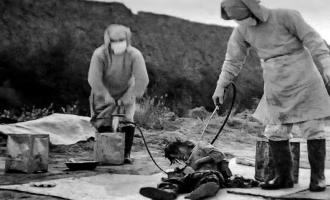Diplomatic posturing apart, there is no rejoicing in Pakistan as the United States quits neighboring Afghanistan. It is now confronted with daunting, almost impossible-to-handle- prospects of more refugees, more drugs and disease, more violence and more militancy.For once, the Islamist zealots are not hailing “victory of the Muslim ummah and the defeat of the foreign heathens”. For once, the security community is not applauding the prospects of the much-sought “strategic depth” its military establishment has been seeking from a friendly regime in Kabul. For, it may prove elusive yet again. Even if it comes, in bitter parts, it could best be Pyrrhic.
President Joe Biden’s decision to quit Afghanistan, fully and finally, even after a four month delay, in September, has made Pakistan’s plans and hopes go awry. It supported the Taliban it nurtured for long years with the hope, kindled bright by the February 2020 Doha agreement that they would march back to Kabul. That it would be systematic and would be facilitated by a gradual US withdrawal.
But now, from the way the withdrawal is taking place, Pakistan has on its hand supporting another round of military conflict next door. The Taliban have met unexpected resistance from the Afghan National Army that has defended its positions well, at several places. In the long run though, the denial of the US air cover could prove critical in this conflict. Till then, much blood-letting, involving serving and retired Pakistani soldiers, is on the card.
According to the Long War Journal, the Kabul government and the Taliban control 133 and 75 districts respectively, while 189 districts are "contested".The population in areas under the Taliban control is 4.5 million, whereas 15.1 million people inhabit the government-controlled districts. The population in the contested areas is 13.2 million. From each of these areas, exodus by thousands in search of safety has already begun.
Military experts now assess that the Taliban, estimated to control a half of the country, may take long to capture Kabul. Resistance will come not from just the Kabul forces, but also various ethnic groups, including Tajiks, Uzbeks and Hazaras, for whom, it will be fight for sheer survival. Veterans like Uzbek leader Abdur Rashid Dostum are already digging in.In a study for the Australian Institute of International Affairs entitled “The Afghanistan Pull-Out is Bad News for Pakistan”, Dr Claude Rakists says: “The likelihood of inter-ethnic civil war will lead to more refugees trying to cross the borders, particularly the border with Pakistan”.
“Washington’s decision to withdraw militarily from Afghanistan without any conditions attached is absolutely not what Pakistan wanted. Following Biden’s announcement, Pakistan’s foreign ministry pointedly reaffirmed the importance it attached to having a withdrawal of foreign troops coinciding with progress in the peace process. Pakistan, which had played a critical role in bringing the Taliban to the negotiating table, was hoping to see the Taliban brought peacefully into the political space, including possibly with the establishment of an interim government that would include them.
“However, regardless how the Taliban comes back to power after a 20-year absence, which increasingly looks like it will be violently, this will be bad news for Pakistan. For the last 25 years, Islamabad’s policy has been to support the Pashtun-dominated Taliban—directly and tacitly—as an insurance policy against India’s support for the other ethnic groups, such as the Tajiks, Uzbeks, and Hazaras. This was always a bad policy. There’s absolutely no guarantee that, once in government, the Taliban’s interests will align with Pakistan’s”.
Reports firmly indicate that the US would continue to provide Kabul with ‘external’ support, and that support would need to come mainly from the Pakistani territory, as has been the case since the 1980s.
The Taliban, with their 85,000 fighters, may eventually succeed in eliminating and chipping away the Afghan forces, going by the past. But as they go strong on their soil, they will need Pakistan that much less, save diplomatic support that the latter would be compelled to give. The Afghans had always ben ambivalent towards their Pakistani hosts, and never recognized the Durand Line as the international border.
The coming months and probably, years, should see the Taliban, both Afghan and the Pakistani rebels of the Tehreek-e-Taliban Pakistan (TTP), working together. For the TTP, bound by identical culture, it will be payback time to help the Afghan brethren operate on the tribal no-man’s land on the Afghanistan-Pakistan border. That will bring to naught all the effort and sacrifices of Pakistan Army in clearing the area of militancy in retaliation to the TTP’s 2016 attack on Peshawar’s Army Public School.
Mohsin Dawar, Pakistani lawmaker from the region, leading the PTM has warned that militants are regrouping in this largely ungovernable region. But both, the Pakistan Army that has nurtured many of the militant groups, as well as the Taliban are targeting him and the PTM. The region should witness violent upheavals in times to come and the PTM could well be the common target. The problems are daunting for Pakistan, reeling under a severe economic stress and combating an out-of-control Covid-19 pandemic that is not likely to go away soon.
Worse – the pull-out of the foreign forces is unlikely to allow the Afghan refugees to repatriate from Pakistan. There are around 2.8 million documented and undocumented Afghan refugees living in Pakistan. Only around half of the refugees are registered, with the rest living without documents, mostly in northeastern Khyber Pakhtunkhwa and southwestern Balochistan provinces which border war-infested Afghanistan. The far-off Southern Sindh province hosts 500,000, including 300,000 in Karachi. Even if living for decades, they pose a security threat to the Pakistani authorities.
Thus, more blood and gore will follow the American withdrawal, but without ending Pakistan’s responsibility to “do more” – the usual American hectoring. Desperately seeking IMF and other funds, Pakistan is in no position to refuse. A wiser, even bitter, US will not let it refuse or allow it to sabotage.
The generals who rejoiced and profited from supporting the ‘jihad’ in the 1980s, helped raise the Afghan Taliban in the 1990s, promote terrorism all around, including India’s Jammu and Kashmir and to far-off lands of Kosovo and Bosnia, wherever they are today, must be looking on their successors with grave concern. They may have fattened in their lifetime, but have left a long legacy of blood and gore that undermines, in the first place, Pakistan.















